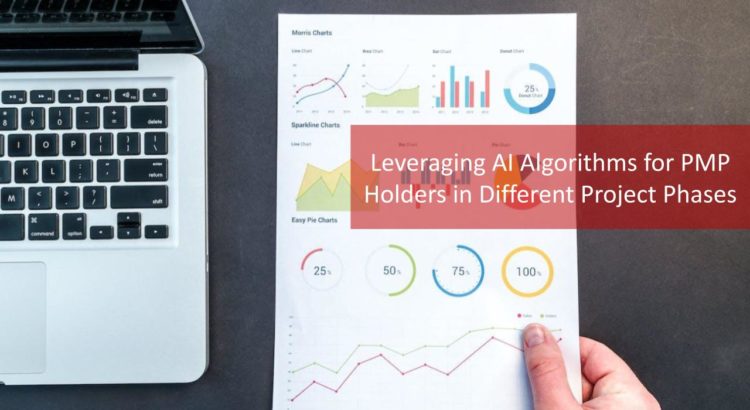In the ever-evolving world of project management, the integration of artificial intelligence (AI) has ushered in a paradigm shift. For PMP (Project Management Professional) holders, this means the opportunity to utilize different AI algorithms to optimize project outcomes across all phases. This blog post explores when and how PMPs can leverage these algorithms, ensuring optimal performance.
If you are looking to earn a PMP Certification you can check out Master of Project Academy’s PMP courses to boost your career with the world’s most popular project management certification:
1. Initiation Phase – Predictive Analytics
During the initiation phase, the key is to determine the viability of the project. Predictive analytics, powered by AI, can help PMP holders forecast potential outcomes based on historical data. This aids in assessing project feasibility, making informed decisions, and setting realistic expectations.
How to Implement:
- Gather past project data related to costs, timelines, and results.
- Utilize predictive analytics tools to determine possible outcomes.
- Make informed decisions based on these forecasts.
2. Planning Phase – Natural Language Processing (NLP)
The planning phase often involves vast amounts of documentation and stakeholder communication. Natural Language Processing (NLP) can assist PMPs in analyzing textual data, extracting crucial information, and even automating some communication tasks.
How to Implement:
- Use NLP tools to analyze past project documents for insights and patterns.
- Implement chatbots for stakeholder queries, ensuring streamlined communication.
- Auto-generate summaries of long documents for quick overviews.
3. Execution Phase – Machine Learning
During the execution phase, it’s vital to allocate resources efficiently. Machine learning algorithms can analyze patterns and make recommendations on optimal resource distribution, ensuring that tasks are executed seamlessly.
How to Implement:
- Input historical project data into machine learning platforms.
- Allow the algorithm to identify patterns and suggest optimal resource distribution.
- Adjust and realign resources based on recommendations.
4. Monitoring & Controlling Phase – Anomaly Detection
For PMP holders, monitoring project progress and controlling deviations is paramount. Anomaly detection algorithms can help identify unusual patterns or deviations, enabling timely interventions.
How to Implement:
- Implement real-time data tracking for project metrics.
- Utilize anomaly detection tools to flag any unusual patterns or deviations.
- Take corrective actions promptly based on these alerts.
5. Closing Phase – Recommendation Systems
As the project nears completion, it’s essential to gather feedback and learn for future endeavors. Recommendation systems can help PMPs identify areas of improvement, suggest corrective actions, and provide insights for future projects.
How to Implement:
- Gather feedback from stakeholders and team members.
- Input this data into recommendation systems.
- Implement suggestions and insights into future project strategies.
Conclusion
For PMP holders aiming to stay at the forefront of project management innovations, integrating AI algorithms into different project phases is not just beneficial – it’s essential. As AI continues to shape the future of project management, understanding and leveraging these tools can make the difference between project success and failure.
- Have a better understanding of the AI trends and AI technologies! Check out our Introduction to AI and Analytics course which will help you learn how to use AI in project management!
